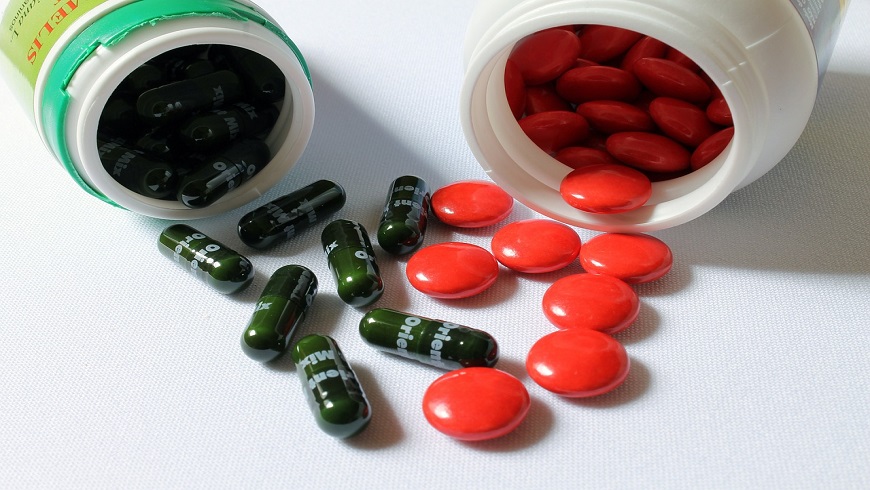
The safety of food supplements
The safety of food supplements is a reality. Currently the food industry must comply with severe national and international regulations and processes that do not allow to make the minimum mistake and that a product can put the health of the consumer at risk. But how is the safety of food supplements strengthened?
The safety of food supplements is strengthened from the moment that there is legislation that requires it. In the food industry, Food Security is a duty that, among many other standards, is contained in the Universal Declaration of Human Rights. Article 25 stipulates “the right of people to an adequate standard of living that ensures them (…) health and well-being and sufficient and healthy food (…)”. In Spain, the Constitution also looks to ensure the safety of food that reaches consumers. Article 43 of the Magna Carta recognizes the right to health protection and requires public authorities to protect public health through preventive measures and the necessary benefits and services, as well as to promote health education.
For its part, Article 51 includes: “The public authorities shall guarantee the defense of consumers and users by protecting, through effective procedures, safety, health and their legitimate economic interests”.
At European level, the EU authorities and the Member States also have a duty to ensure and protect the health of consumers and ensure food safety. In conclusion, today the market for food supplements is safer and more controlled than ever.
Food supplements. Control and registration systems
Current regulations require companies that trade in the food supplements market to offer safe products. The food industry, to which the food supplements sector belongs, forces, both in Spain and in the rest of the countries of the European Union, to apply a detailed control system known as Hazard Analysis and Critical Control Points (HACCP ).
This is a method that identifies, examines and controls food risks in each and every phase of the food chain. The person in charge of each of these stages is obliged to respond to possible dangers and take appropriate measures in each case. On the other hand, all companies that manufacture or distribute food supplements are also required to register with the General Sanitary Registry of Food and Food Companies (RGSEAA), which is managed by the Ministry of Health and Consumption and Autonomous Communities (CCAA). Registration guarantees that operators are under surveillance of the health authorities of the Autonomous Communities. In addition, any food supplement is subject to administrative control from the moment it is put into circulation as there is an obligation to notify its placing on the market before the relevant Administrations. Subsequently, and on a regular basis, checks are carried out systematically to verify compliance with all legal provisions.
The label is an element of food safety
The label is another element that guarantees the safety of food supplements.
Spanish regulations in this area are strict and establish a series of requirements.
The label of any nutritional supplement must include mandatory elements such as:
– The daily consumption dose recommended by the manufacturer and the warning not to exceed the daily dose expressly recommended by the manufacturer.
– The way of use.
– The claim that food supplements should not be used as substitutes for a balanced diet.
– The list of ingredients of food supplements in decreasing order.
– The identification of the responsible operator
– The indication of the ingredients that can cause food allergies or intolerances.
– Etc.
Food supplements. A specific regulation
Apart from the rigorous food legislation that exists to guarantee the safety of a food supplement, since 2002, there is a specific regulation at European level that also regulates the food supplements industry. This is Directive 2002/46/EC that is transposed to the Spanish legal system through Royal Decree 1487/2009. On the other hand, Regulation (EU) 1170/2009 collects vitamins and minerals that can be used specifically in the manufacture of food supplements. With regard to substances other than vitamins and minerals, today, the different Member States have their own regulations pending final European harmonization. There is also Regulation (EU) 2015/2283 on Novel Foods. Food supplements and EFSA
The highest European Food Safety Authority (EFSA), the highest official body in the EU, has a key role in ensuring the safety of a food supplement. The main role of the entity is to evaluate and communicate the risks associated with the food chain. As a risk assessor, it develops scientific opinions or opinions and provides a solid scientific basis to maintain the level of food security needed throughout the EU. In recent years, the EFSA has issued positive opinions on the use and consumption of some ingredients in food supplements as long as the amounts that the entity has established as safe are added and consumption is made according to the doses also agreed.
Food supplements and consumer
Food supplements are safe and the consumer has to make responsible use taking into account the type of product he is consuming and the faculties of the same.
A dietary supplement contributes, facilitates and helps maintain good health provided that, in addition, a healthy life with a varied and balanced diet is carried out, regular physical activity is practiced and the guidelines set by the manufacturer are followed and in no case. These products are intended for the treatment of diseases.
Food supplements can never replace a diet. Under normal circumstances, a proper and balanced diet should provide all the necessary nutrients for the normal development and maintenance of a healthy organism. For specific population groups (pregnant, breastfeeding, children, people with a particular medical condition) it may be useful to ask for professional advice and, in case of taking a medication, always inform the doctor. Food supplements are safe if these principles are taken into account, consumed according to the manufacturer’s instructions and acquired through professional channels.






